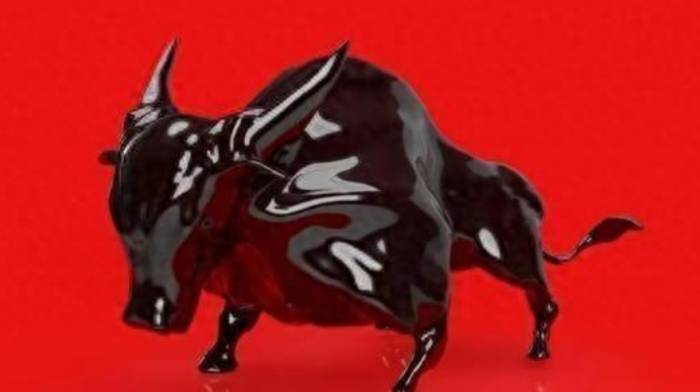The stock market, you see, is the place where emotion can be the most perilous. One impulsive move and you might find yourself right at the eye of the storm. Watching this "tremendous positive" wave rush in, do you truly believe that the A-shares are going to open at their upper limit, and that everyone is going to make a fortune? Hold on! You still need to open your eyes and see clearly whether this "bull market" aura is real or just an illusion.
Let's start with the U.S. stock market. Behind the "unceasing decline" lies some subtlety. The Federal Reserve's interest rate hikes and inflationary pressures have all made the capital market tense, and where the funds flow is essentially following the wind direction. The current celebration over the surge in the A50 index seems like a "seesaw effect" between the U.S. and A-shares, but to really believe that "U.S. stocks fall, A-shares rise" is an ironclad rule would be too naive.
Everyone understands the principle that in a global economy, we all suffer together. The downturn in the U.S. stock market will not have no impact on the Chinese stock market; it's just a matter of the extent of the impact. The economy itself is a large network; how can one node collapse while the others remain unscathed?
Speaking of the surge in the A50, on the surface, it's due to policy benefits and expectations of China's economic recovery. Indeed, the recent domestic economic recovery has been quite strong, and policy dividends are emerging one after another. The government's determination to invigorate the market is strong, but does this really mean that international capital firmly believes in the Chinese market?
Capital is like a "duckweed" with no fixed nature, saying it loves you today and maybe running off with someone else tomorrow. It may rush in now to bottom-fish, perhaps seeing short-term profit opportunities, but once the wind changes, these funds can withdraw faster than anyone else. If you expect capital to provide market stability, you might as well expect money to rain from the sky.

Looking at the optimism of retail investors, a large wave of "novice leeks" is moving at the slightest rumor, preparing to bottom-fish with their blood boiling, as if the illusion of "getting rich overnight" is right in front of them. The stock market can indeed make people wealthy, but don't forget it can also lead to bankruptcy. Many people hold the mentality of "it has already fallen so much, it should rise now," and this blind confidence is undoubtedly digging a hole for themselves.
Market reversals are not a simple "rebound"; they often have more complex economic factors and capital games behind them. In such situations, it tests investors' rationality and calmness even more. If you really see yourself as the "leek" of the stock market, the market will sooner or later turn you into a "cleanly cut leek root."
Speaking of this, we must mention the so-called "stock market experts" who sing high praises when the bull market comes and sing the blues when the bear market comes, with a face of wisdom after the event. Many people are accustomed to jumping out to comment when the stock market soars or plummets, but such analysis is at best "hindsight" and really doesn't play a substantive role in the unpredictable market.
Instead of spending time listening to these comments, it's better to read more financial reports and understand industry trends to improve your judgment. In the information age, where true and false news flies everywhere, if you don't learn to discern for yourself, you'll end up just adding bricks to someone else's pocket.
However, it's not to say that there is no hope in the market. The resilience of China's economy is indeed a highlight, and the policy level is also working hard to adjust the structure and stabilize growth. In the long term, there is indeed reason to remain optimistic about the economic outlook. Just don't treat the stock market as the only "life-saving straw," after all, it is essentially a speculative market, and fluctuations are the norm, while sharp rises and falls are its "daily bread." The rise and fall of the stock market have their own laws, and in the long run, it reflects the fundamentals of the economy, not some short-term good news.At present, the surge in the A50 may cause a wave of restlessness in the market, but a calm analysis reveals that the direction could change at any moment. The current optimism in the market is largely supported by "confidence", and once confidence is shaken, the "confidence bull" could instantly turn into a "frightened bird".
Therefore, investors should not get carried away by the immediate rise and get hot-headed. The stock market is not a lottery, and you must think clearly before placing a bet about what kind of risk you can withstand.
So, in the end, I would like to ask: Can A-shares really break free from the shadow of the global economy and soar? Today's surge, could it be a prelude to a decline tomorrow? For this "stock market feast", would you choose to be a spectator or take a chance and join in?